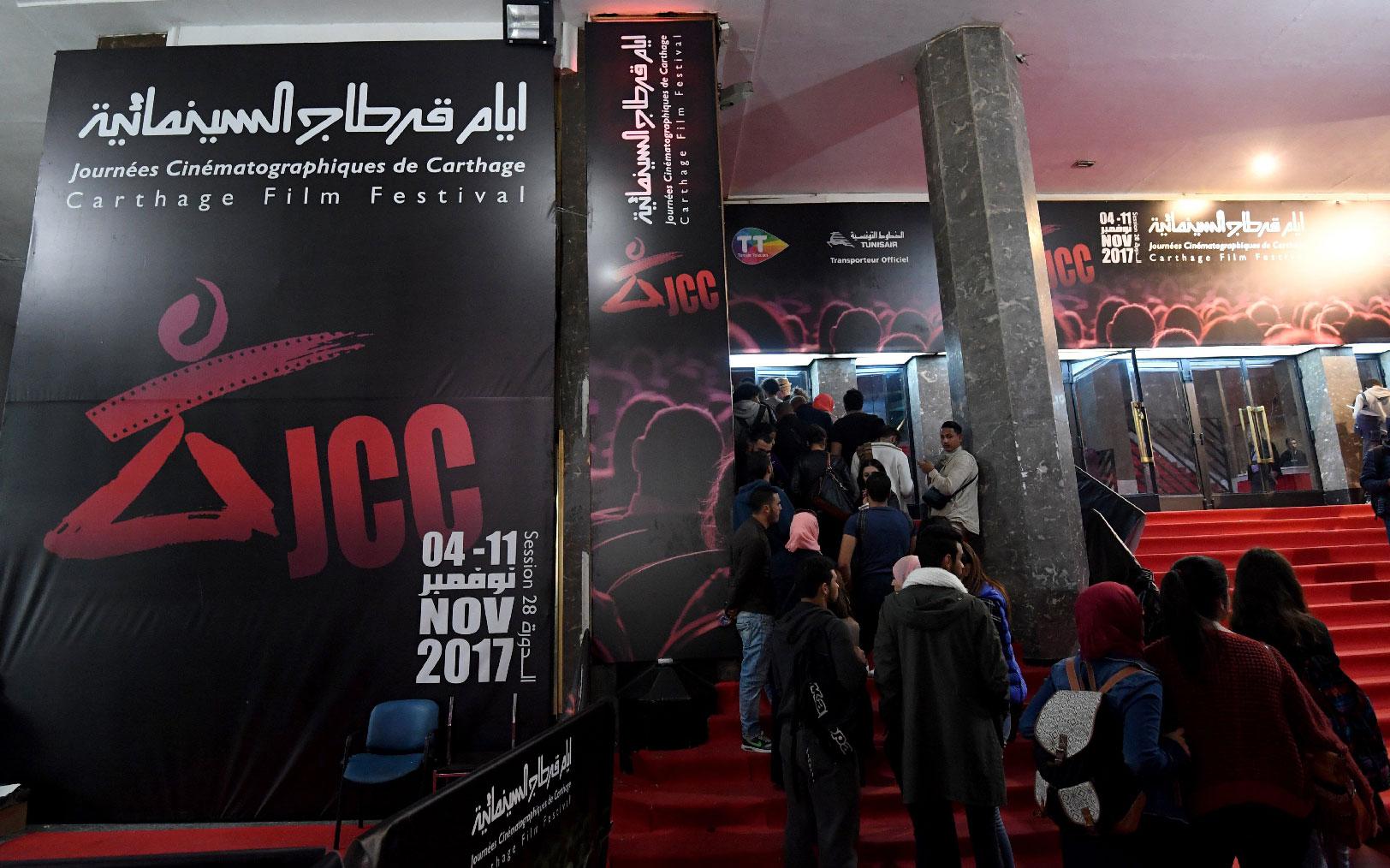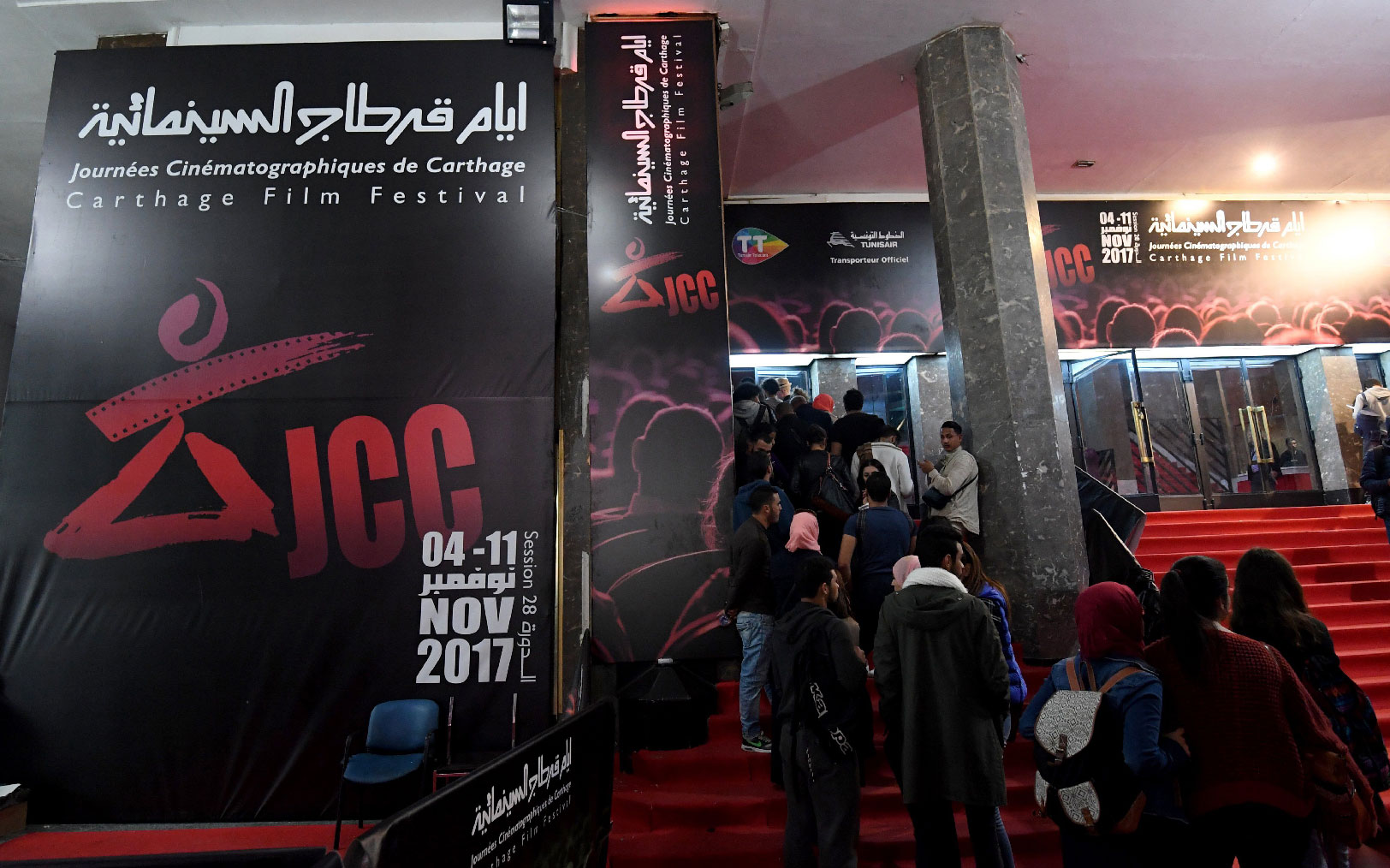Cinema sees revival in post-revolution Tunisia
TUNIS - Tunisian filmmakers are making the most of newfound freedoms to tackle issues banished for decades from the silver screen, prompting a post-revolution cinema revival.
"Since 2011, one of the most tangible benefits we've seen is the ability to talk about all topics, especially themes of society, our daily life, its complexity and its richness," said producer Habib Attia.
"In cinema it pays to have that sincerity."
Just two or three films a year were released during the 2000s, but the industry has rebounded since the 2011 uprising that toppled dictator Zine El Abidine Ben Ali.
A dozen feature films are now made each year and new cinemas are opening up.
Some 200,000 people flocked to the cinema this year to watch "El Jaida" by filmmaker and activist Salma Baccar about the fight for women's rights in Tunisia.
Such box office figures are the highest in 15 years, said Lassaad Goubantini, one of Tunisia's leading film distributors.
Mehdi Barsaoui, a Tunisian director, said filmmakers are "no longer forced to skirt" rules imposed by the former regime "through unsaid things and metaphors".
His first feature film examines organ trafficking between Tunisia and Libya in the chaos after the two countries' revolutions, which is being shot in Tunisian studios and the country's south.
"It's in direct speech and with a form of authenticity that allows universal stories to be told with a local stamp," he said, while filming at a squalid dormitory for trafficked children.
"The renaissance is due to the closeness of the writers" to reality, Barsaoui said.
International acclaim
The country's filmmakers have also seen success abroad, with Mohamed Ben Attia's "Hedi", a love story set in the aftermath of the Arab Spring, picking up an award at the 2016 Berlin film festival.
Last year, Kaouther Ben Hania's "Beauty and the Dogs", about a Tunisian woman seeking justice after being raped, was screened at Cannes before its international release.
Tunisian directors are also turning their attention to a reality rarely talked about by government officials -- the radicalisation of the country's youth.
They include Mahmoud Ben Mahmoud's "Fatwa", due for release next year.
Ben Hania addresses the theme through the eyes of a father whose sons have gone to fight in Syria in "My Dear Son", which was screened at the Directors' Fortnight in Cannes.
The latter two titles have been chosen for the official competition at Tunisia's own Carthage Film Festival, which runs from November 3 to 10.
Filmmakers are also experimenting with cinematic styles, such as silent film and mobile phone clips.
Another film featuring on the Carthage programme is "Dachra" by Abdelhamid Bouchnak, dubbed Tunisia's first horror film.
Earlier this year, it was shown at critics' week in Venice, a sidebar to the main festival that promotes emerging talent.
'Diamond in the rough'
But creative clout is not enough to entirely revamp an industry, with the business side also needing modernisation.
"Now each release is accompanied by promotional campaigns, previews, screenings with debates and screenings in the regions," said Goubantini, the distributor.
As a result, attendance at film screenings has increased by 10 to 15 percent each year since 2012, according to figures from distribution firm Hakka.
But it is hard to compile accurate figures, with no electronic ticketing system in place and no clear relationship between producers and distributors.
"We have a diamond in the rough, but it still needs to be cut," said Kais Zaied, a young co-founder of Hakka which was launched in 2013.
The biggest challenge in Tunisia is the shortage of cinemas. From just a handful in 2012, the country now has around 15.
Screenings are also held at community centres, while some old cinemas are being restored.
The international chain Pathe Gaumont plans to open an eight-screen multiplex in Tunis soon, with another to follow in the coastal city of Sousse.
But there is still a long way to go, as Hakka co-founder Amal Saadallah estimates Tunisia needs at least 100 cinemas to create a strong industry.



